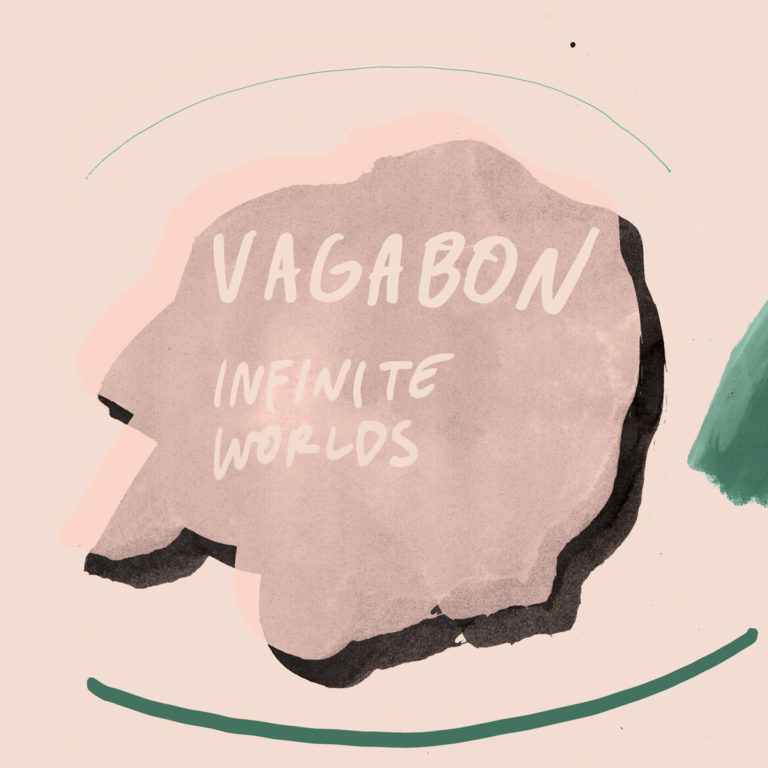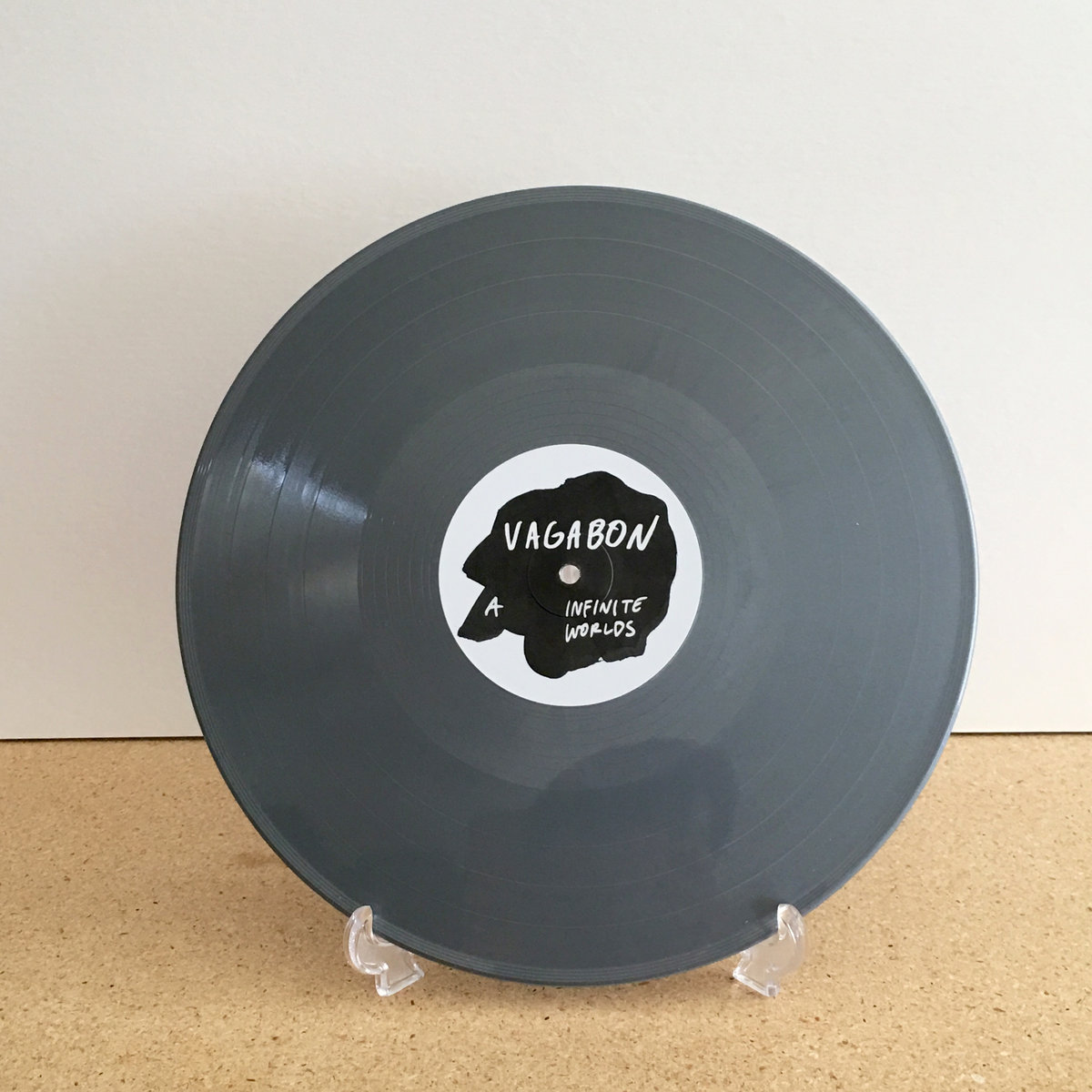In our belated review of their debut EP, Persian Gardens, we described how Lætitia Tamko’s Vagabon project employed a healthy dose of loneliness and regret to create something paradoxically uplifting. In fact, it captured the essence of what we attempted to achieve with our new name. “Vagabon make the special kind of sad and confused music that has the opposite effect on the listener,” we wrote. “The sort of music that makes you feel part of something, a big sad and confused gang spread out all over the world, connected by shared experience and a sneaky feeling that life is worth living.”
Well, imagine if, rather than starting from scratch in an attempt to out-do the previous release, Tamko and Co. double-down on perfecting this idea. Imagine how powerful said EP could be if the best bits were recycled, given a new coat of gloss and accompanied by a handful of brand new, genre-bending hits to create a full-length album. Imagine Infinite Worlds, a record where the Vagabon aesthetic blooms from the seeds of the past, forgoing the disposable mile-a-minute culture that usually makes up digital age music in favour of patience and craft. Why throw away and move on when you can build something lasting? As the press release reads: “Within the songs of Laetitia Tamko there are infinite worlds: emotional spaces that grow wider with time, songs within songs that reveal themselves on each listen.”
‘The Embers’ (‘Sharks’ from Persian Gardens) opens the release with Tamko’s plaintive voice, soon escalating into something far noisier, the lyrics sounding like something between plea and apology, though by the end it could be an accusation also. “You’re a shark that eats every fish, you’re a shark that hates everything. Run and tell everybody, I’m just a small fish.” The song has evolved since the first iteration, losing none of its vulnerability but now carrying a new defiant edge, the subject probed from a more empowered angle. Similar can be said of ‘Fear & Force’ (formerly ‘Vermont II’). The lyrics remain unchanged from the Persian Gardens version, but the communication feels somehow clearer. What was once a standard break-up/heartache song now seems to be operating on a different level, a song about missed opportunities and perhaps even alternate universes, the ridiculously wonderful and suffocating idea that so much can hinge on so little, with no chance of going back.
I’ve been hiding in the smallest space
I’m dying to go, this is not my homeFreddie, come back.
I know, you love Vermont but I thought I had more time.Freddie, come back.
I know, you love where you are but I think I change my mind.
[bandcamp width=100% height=120 album=2004525867 size=large bgcol=ffffff linkcol=0687f5 tracklist=false artwork=small track=699153952]
It’s as though Tamko’s intentions were lost in the demos through no fault of her own, passed through the bedroom pop filter by fans of the genre and filed as well done but run-of-the-mill young loneliness. With these new versions comes the realisation that these tracks resonate far wider, alluding to issues around selfhood and free will and cultural barriers, and the album’s title begins to seem all the more pertinent.
‘Minneapolis’ and ‘100 Years’ are altogether more frantic, bursting into life with the crash of guitar and tumble of drums. At several points the energy ceases, dissipating into silence before either exploding back or rebuilding gradually toward a finale, the instrumentation coalescing with practised patience, eventually gathering as a dense black thunderhead. Sandwiched between these tracks is the warm, quasi-instrumental ‘Mal à L’aise’, Tamko’s spoken word French supported by Eric Littman’s hypnotic refrain, acting more an instrument than additional vocals. The song is a musical mosaic, somewhere between downtempo electro and devotional ambient that shifts shape according to mood and context, one which hints at the spheres into which Vagabon might push in the future.
[bandcamp width=100% height=120 album=2004525867 size=large bgcol=ffffff linkcol=0687f5 tracklist=false artwork=small track=256998384]
And the variation isn’t done there. ‘Cleaning House’ is blue bedroom folk which pushes past the tropes of the genre (“What about them scares you so much? / My standing there threatens your standing too”), while ‘Cold Apartment’ gets semi-near to Daughter-esque atmos-pop/rock. Here the insistent drums and impassioned vocals build in intensity, though there’s a foggy absence which refuses to be quelled, as though the track was written in the stillborn silence of some violent trauma and a mere attempt at filling the space. ‘Alive and A Well’ is altogether warmer, equals parts hopeful and wistful, not so much an attempt to plug space but rather efforts to carve one out – room in which to live and grow. In which to be.
“I would change my hair I’d grow taller
I’d live everywhere that I love
I’d stand strong, my feet will drag on
My odor will linger and it’s something they will long forI will make a home that is my own
if I move around, I know it won’ t be for a while”
[bandcamp width=100% height=120 album=2004525867 size=large bgcol=ffffff linkcol=0687f5 tracklist=false artwork=small track=3981743677]
So yes, we stand by the summation. This is the sort of music that makes you feel part of a something, it does reflect a big sad and confused gang spread out all over the world, and we should be connected by shared experience and a sneaky feeling that life is worth living. However, to mark Infinite Worlds as simply sad or lonely falls into to the very trap of binarism that the album spends so much time fighting. Yes, it’s mournful but joyous too. It’s bedroom pop and indie rock and experimental ambient. It’s immensely personal and broadly relatable. It’s Vagabon, though only as it sounds right now.
You can get Infinite Worlds now on vinyl or CD from Father/Daughter Records, or the Vagabon Bandcamp page.


